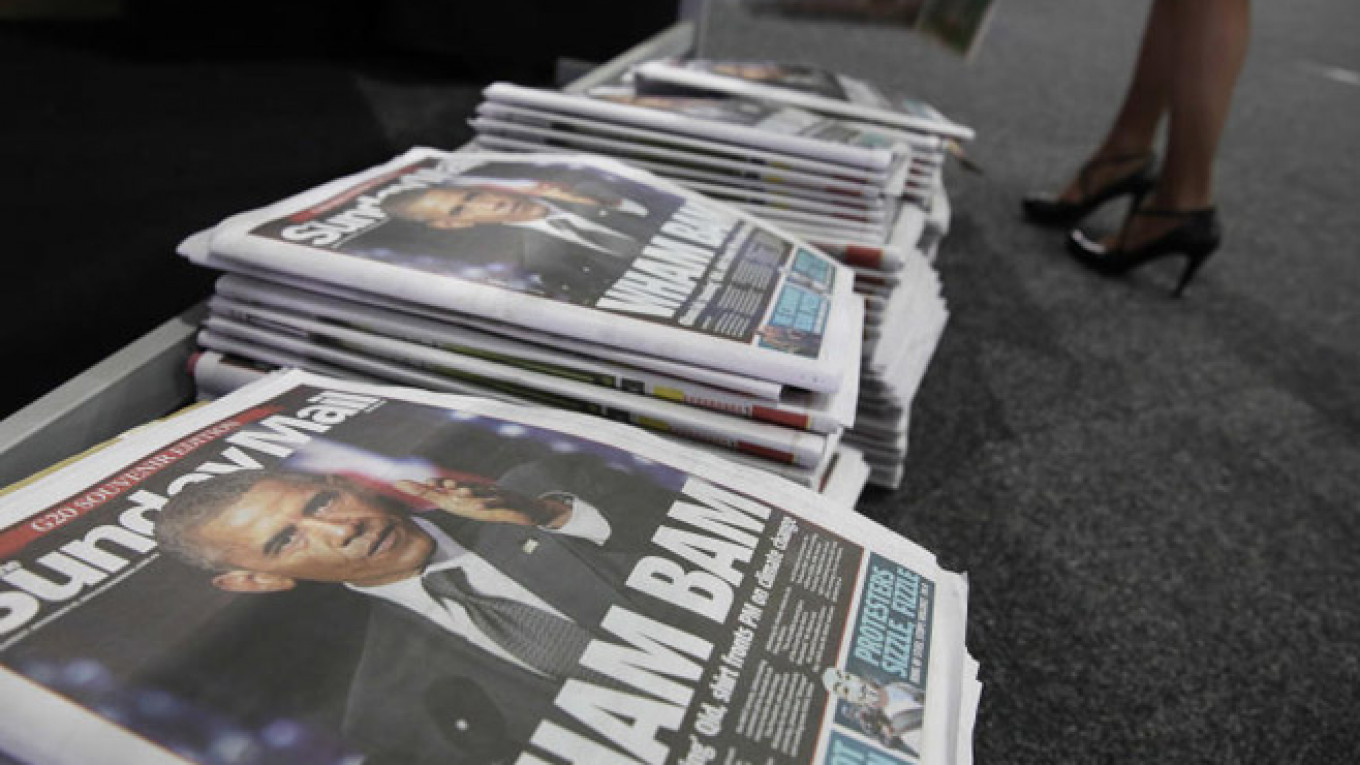The Russian government has come up with a bunch of new media restrictions, resurrecting a Soviet legislative concept used to combat Hollywood flicks.
Media reports found to be "promoting a cult of violence and brutality" will face fines of between 20,000 and 200,000 rubles ($360 to $3,600), according to the new bill introduced by the government on Friday.
The term hails back to the times of the Iron Curtain, said the head of the Kremlin's rights council, Mikhail Fedotov, the Kommersant business daily reported Monday.
Soviet censors used the "promotion of the cult of violence" as a legislative pretext to punish people who were importing videotaped Hollywood blockbusters, Fedotov was cited as saying.
The new bill also wants to punish "propaganda of extremism" or "whitewashing terrorism" in the media with fines of between 100,000 and 1 million rubles ($1,800 to $18,000).
Print runs of media promoting extremism or the other horrors listed in the bill will be seized, according to the draft law, available on the State Duma's website.
No time frame for the bill's review was available as of Monday.
Russian legislation offers a vague definition of extremism, and opposition activists have warned that it is routinely used to persecute people for political reasons. No legal definition exists for the "cult of violence and brutality."
Media legislation already allows authorities to shut down a media outlet for promoting extremism or terrorism — though not the "cult of violence."
Any criticism of the government can be treated as if it is destabilizing the country and thus "promoting extremism," Nikolai Svanidze, a member of the Kremlin's human rights council, told Vedomosti on Monday.
A lawmaker with the pro-Kremlin A Just Russia party was equally skeptical of the bill, saying in comments carried by Vedomosti that "such laws are passed to distract attention from the real problems."
A Message from The Moscow Times:
Dear readers,
We are facing unprecedented challenges. Russia's Prosecutor General's Office has designated The Moscow Times as an "undesirable" organization, criminalizing our work and putting our staff at risk of prosecution. This follows our earlier unjust labeling as a "foreign agent."
These actions are direct attempts to silence independent journalism in Russia. The authorities claim our work "discredits the decisions of the Russian leadership." We see things differently: we strive to provide accurate, unbiased reporting on Russia.
We, the journalists of The Moscow Times, refuse to be silenced. But to continue our work, we need your help.
Your support, no matter how small, makes a world of difference. If you can, please support us monthly starting from just $2. It's quick to set up, and every contribution makes a significant impact.
By supporting The Moscow Times, you're defending open, independent journalism in the face of repression. Thank you for standing with us.
Remind me later.






